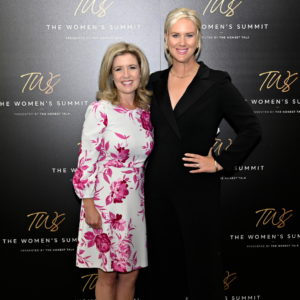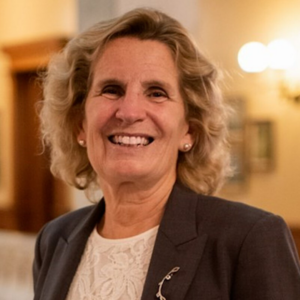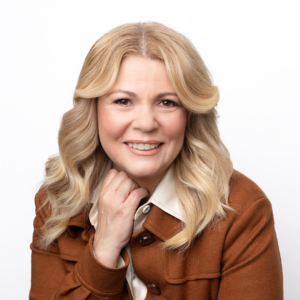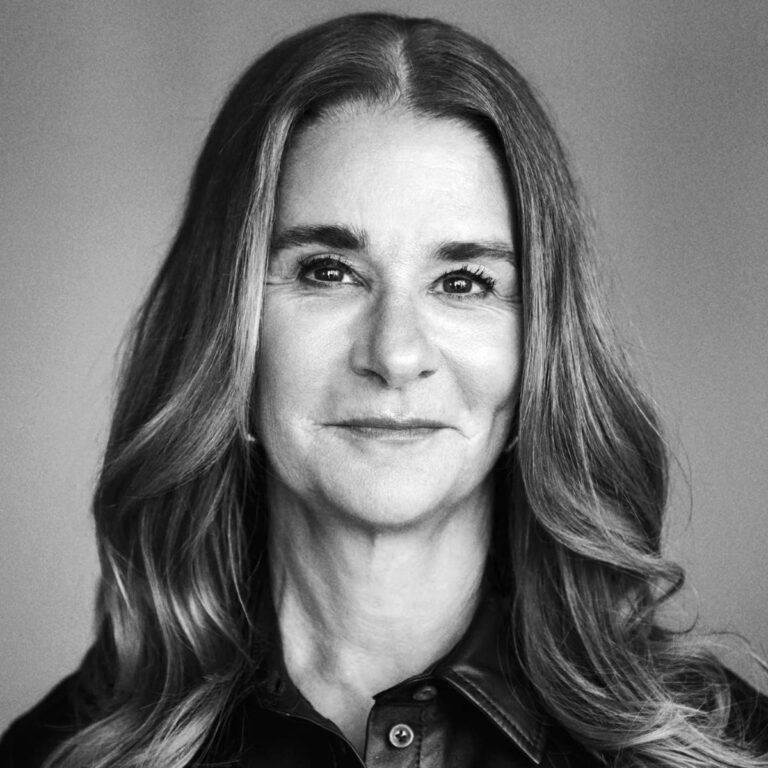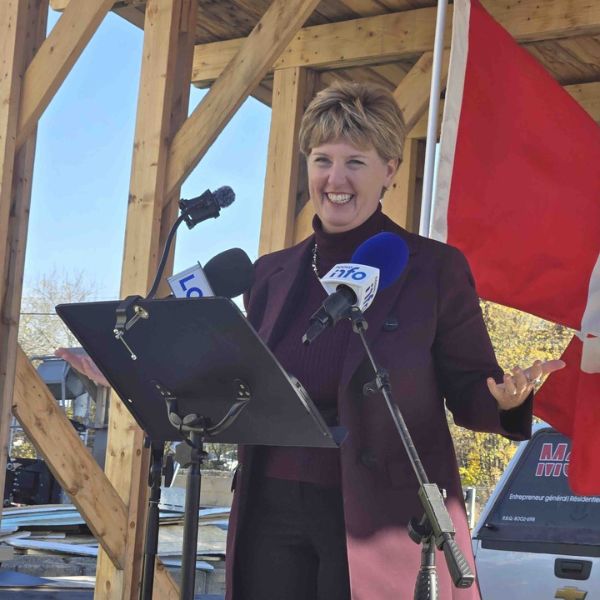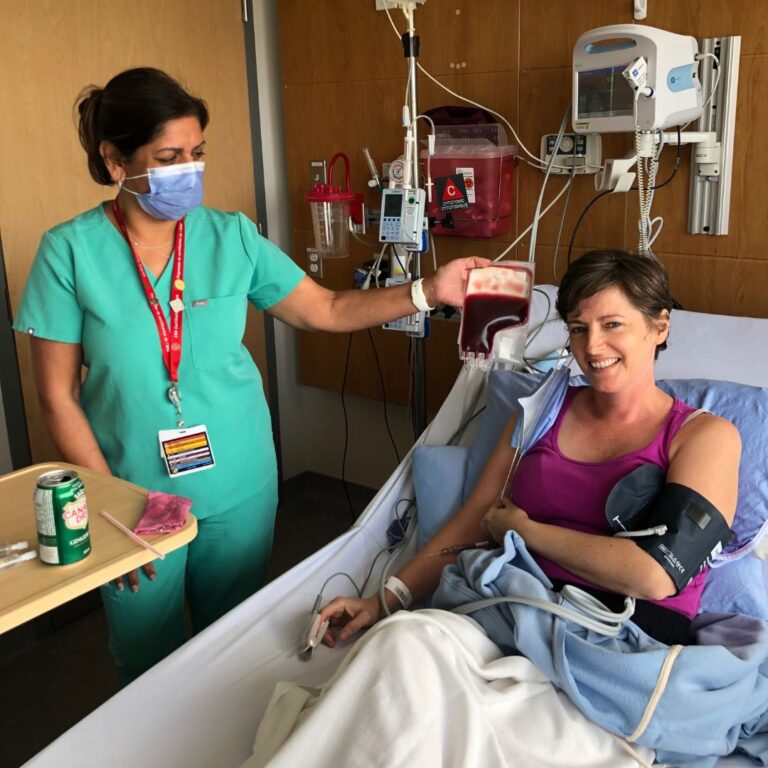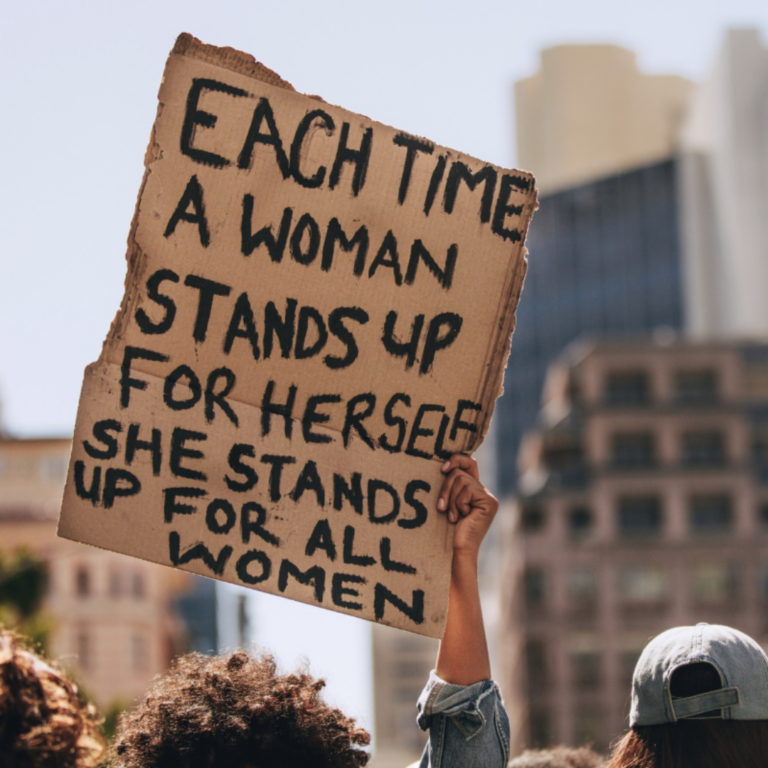Flora Do – Vice President, Term Investments & Savings, RBC InvestEase and Head, RBC Healthcare
Meet Flora Do, a remarkable woman who is helping to reshape the face and voice of modern corporate Canada. A progressive and influential voice in Canada’s largest bank, she is the Vice President of Investments, Transformation and Client Segments at RBC and the head of RBC Healthcare. She has made a big impact at the bank and on the generation of women leaders who are coming up behind and beside her in the workplace.
Flora joined Jen and Catherine to talk about it all: her career, management style, childhood, and her incredible mother. It’s personal, it’s informative, and it’s honest. Listen now and prepare to be inspired.
Note: This transcript has been edited for clarity and length.
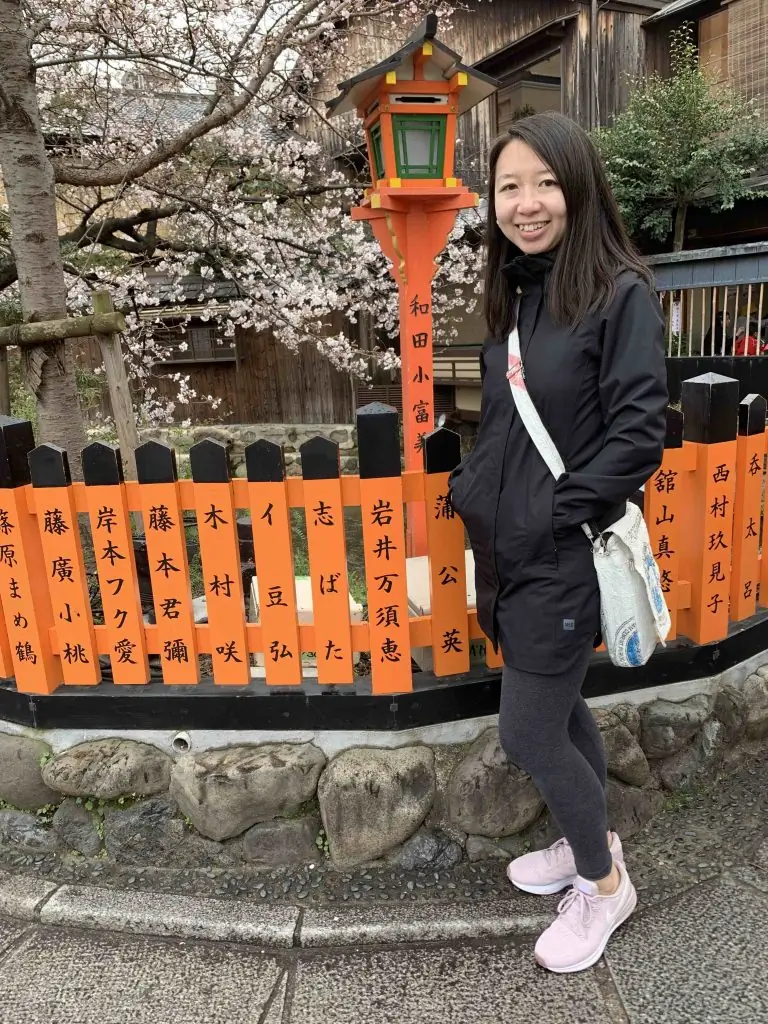
Catherine Clark: Talk to us a little bit about what you do at RBC.
Flora Do: I’m sure everyone says this, but I really do believe I have the best job. I love the diversity of my job and the diversity of people that I get to work with. There are three components to my current role. One is leading the digital transformation of our retail investing business at RBC. The second is learning how do we grow our investing clients, because we know that more Canadians need to save and invest. And the third part is leading RBC healthcare, which is about how do we support our physicians and dentists across Canada, and putting more time back in their lives so they can focus on what matters most, which is caring for patients.
Jennifer Stewart: Healthcare is one of the hottest topics right now across the country and the globe. As we emerge out of the grips of this pandemic, what does that look like for you?
Flora Do: Most people don’t have to think about when they go to work, how am I going to get paid, and they don’t actually have to be involved in getting paid. But the reality is every physician and dentist does. And so where can we play a role in helping educate them in terms of simplifying their financial well-being? And also how can we help alleviate that administrative burden so they can really focus on what they’re trained to do?
Everyone’s felt stress in different ways in their lives through the pandemic. What I try to focus most on is perspective. Having grown up as a daughter of immigrants and a small business owner, there’s always going to be something that feels like it’s a big problem, it’s really hard to get over, but then you find perspective on other people’s challenges and just how other people are facing their struggles and the opportunity to reset by broadening your perspective is really how I approach everything in life.
Jennifer Stewart: Take us back to your childhood for a moment. Your parents emigrated to Canada, and your mom was a major influence on your life. She worked in a factory and then decided to become an entrepreneur. What was your childhood like? And what influence did your mom have on who you are today?
Flora Do: I loved my childhood because there was so much unexpected learning that probably isn’t in a typical Canadian childhood. My mother is the eldest of eight, and she grew up at a time and in a culture where education was prioritized for boys over girls. When there were finite resources, her brothers were prioritized for post-secondary education, and she, being the eldest daughter, was responsible for just caring for the family and the business. While she couldn’t pursue the formal education that she aspired to, she purposely left this relatively secure livelihood working in a factory that had benefits and a pension, particularly at a time when my father fell ill and had to stop working when we were quite young. She said that she really wanted to provide a different type of role model for my brother and I, and having the courage to step away from that stability and do something on her own that she could be proud of, and also show my brother and I how to change your path and control what you can control.
Catherine Clark: That must have been both inspiring as a young person to watch her do that, but also a little frightening.
Flora Do: I was very scared. I was probably 10 or 11, at the time. And I remember thinking, if mom stops working at the job that she goes to every day, what’s going to happen with our house, with the lessons that I was enrolled in, and just, things you think about as a kid. I probably worried for a few weeks there, and then, as I saw her plan coming together, and stepping into building a home-based business, I thought, ‘I’ve got to be part of this.’ I was her employee number one, and only, and I got to do everything from the bookkeeping to learning inventory management and learning how to sell cars. We would do trade shows together. While there was a lot of fear and anxiety, it was, again, focusing on what’s in front of you. And what can I contribute to? And what can I help control?
Jennifer Stewart: I’m sure that entrepreneurial experience is really valuable to your customers. But you would have had to also learn at a very young age how to adapt and be resilient on a number of fronts, including emotional resilience. How have those skills helped you over the course of your career?
Flora Do: I think one is leaning on your community – being really transparent with what are your challenges and what are your struggles. Obviously, it takes time to figure out who’s your trusted network, whether it’s in life or in the workplace. And, again, back to that broadening perspective, you just never know what you’re going to learn. When you learn that others have gone through similar challenges at a different point in time, it gives you confidence that maybe that’s something you can step through as well. I know it’s often difficult to talk about our challenges and struggling, but it’s just so rewarding when you open up and hear where others can either point you to a place of a place of assistance, or maybe have gone through that themselves and can share with you directly.
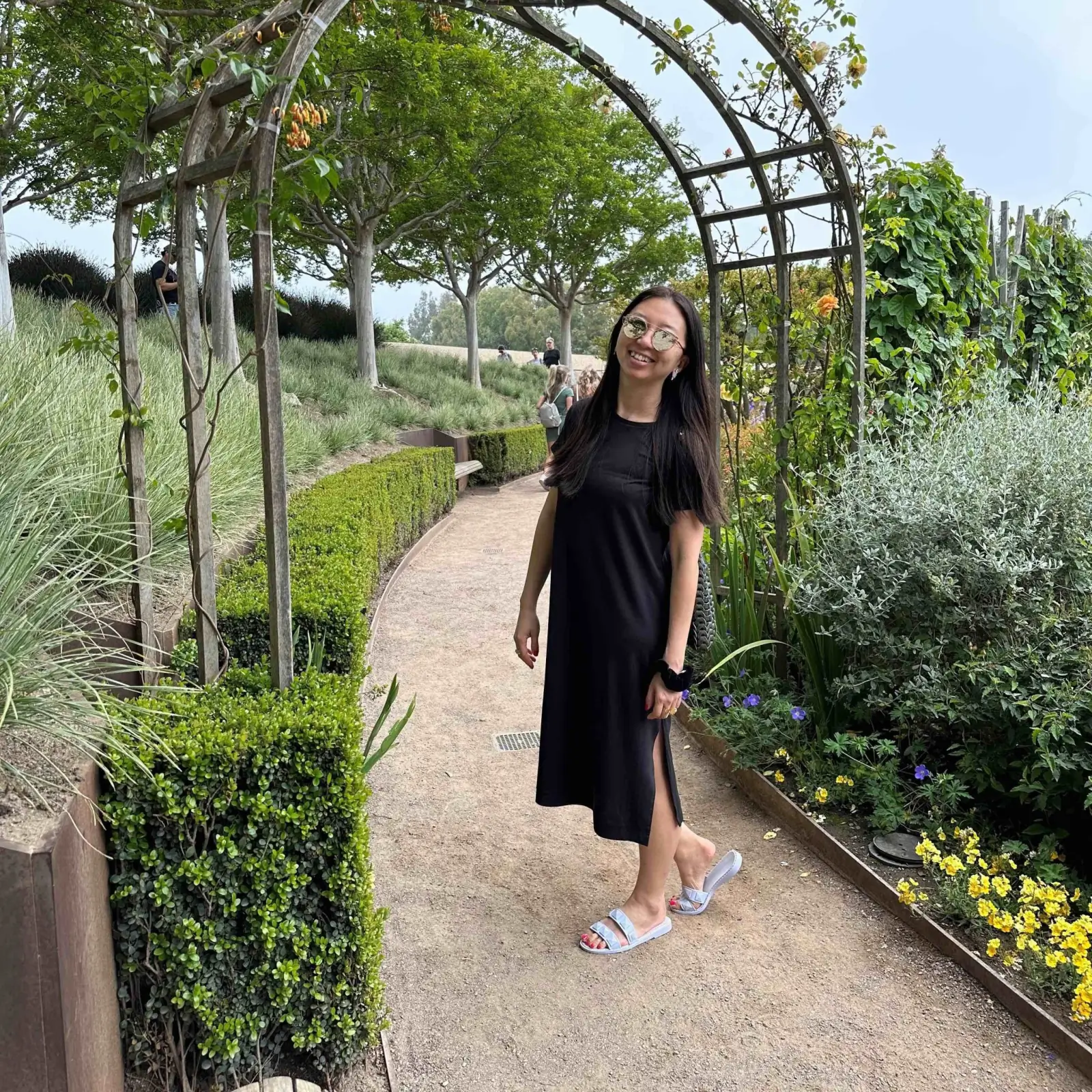
Catherine Clark: As women we’re often reluctant to share the bad spots, because we think if we admit that we’re struggling with something, or we’re facing a challenge, people will see that as a sign of weakness. I think that’s changing. That’s part of the reason why Jen and I do this podcast, because we really believe that if women are super honest about what they’re facing, it helps other women realize they’re not alone. How do you encourage other women to display that kind of honesty and to take that risk?
Flora Do: Role modeling is definitely a big part of that. I’ll point back to my mother showing the value of being transparent so that everyone can be part of the solutioning. The problem solving I think gives people a sense of control, whether that’s perceived or actual, and that perception of control and confidence goes a long way. So encouraging others, sharing personal stories, as we’re doing today just helps people know, “Wow, I had no idea this was behind this person, but it’s something that they’ve worked through and overcome.” And so role modeling storytelling. I think it’s all about that network effect, and helping bring transparency and honesty to all of our conversations.
Jennifer Stewart: We’ve just been through almost three years of a global pandemic that’s uprooted how we work, how we network, how we interact with each other. What are you hearing about the current state of things for professional women in Canada?
Flora Do: A couple of things come to mind and in particular, representation. This is a journey that I’ve been on, understanding the importance of representation. I come from a place of privilege, growing up in Toronto, a very diverse place, and having worked in very diverse companies like RBC. Often, when I came up, I wasn’t quite sure what were these challenges that everyone else was talking about. I felt that I wasn’t touched by them. And then as I grew in my career and met more women and learned about their specific struggles, I appreciated the importance that representation does bring, and representation in all different facets, not just the way you look, but in terms of different backgrounds, whether it’s cultural backgrounds, socio economic backgrounds, and just having a broad range of diversity around the table, especially in leadership roles, can help people feel like, “There is space for me.”
Catherine Clark: Can you talk to us about what you mean by facets of diversity and broadening diversity?
Flora Do: I think there’s so many definitions of diversity. I’ll share a learning I had from a leadership exercise we did a couple of years ago. I was sitting around a table of all men who happened to be white, and they were all from different parts of Western Europe, North America. When we did this diversity and inclusion exercise, I thought, ‘Oh, I’ve got this in the bag. I’m the only woman of colour sitting here.’ And as we all shared our backgrounds, I learned about facets of their diversity. One person, for example, was an Irish gentleman, who grew up at a time when the Irish were quite prejudiced against in the United Kingdom, and just sharing his stories about growing up, and his parents not being able to get jobs just because they were Irish. And so, one by one, I learned about all these different challenges that either individuals themselves had experienced or their families had. By the time we finished the exercise going around the table of 10 people, it turns out that I’d had some of the least challenges in a way. So I think about really getting to know people as individuals and not making assumptions that they can’t appreciate aspects of diversity inclusion just because of what they look like, or maybe where you think they came from.
Jennifer Stewart: You’re involved in the community through some charitable initiatives. Can you tell us a bit about why you chose those organizations?
Flora Do: Both are very personal causes. I will say for folks who are exploring where can they contribute, having that personal connection is what sustains the motivation, the commitment. We’re all extremely busy people, but that personal connection is what really energizes you at the end of the day.
So, two very different but very personal reasons. With the National Ballet of Canada, I have the great privilege of serving on their board after having grown up watching them. My mother was a big dance fan and tried to bring me to the ballet when she could, and I took dance lessons for many years. It’s kind of a dream to be able to contribute to an organization that’s trying to make dance more accessible.
And then for the second nonprofit organization, CORE, that supports adults with developmental disabilities, that is very personal as my brother is a participant of CORE. I got involved because they were doing some strategic planning many years ago, and I was in a consulting career at the time. Now I have the privilege of chairing the board. Contributing to an organization that not just benefits a family member, but also members of the community that are so isolated and have been even more isolated through the pandemic, has been really important to me.
Catherine Clark: You mentioned your brother. Are you able to talk to us a little bit about that?
Flora Do: My brother and I grew up with tremendous support from the Canadian social system. I went to a gifted program in the city of Scarborough, and my brother who has developmental disabilities went to a special school for his cohort on the spectrum of developmental disabilities. In terms of helping me broaden my perspective and seeing the challenges that more isolated members of our society go through, and all the privilege and resources that I can access just because of the way that I was born and the system and society that I was born into – I keep that at my core in terms of making time to give back because I have just been blessed with so much.
I can see life has different paths for people just by sheer luck.
Flora Do
I think of him often as I do my whole at work professionally and in the nonprofit space.
Catherine Clark: You’ve had such a series of fascinating experiences that have really broadened your own lens and allowed you to become such a compassionate but strong leader. One of the things that really interests me is that you chose a really different path from your mom’s. You chose to have a relatively financially stable, dependable job. Was that deliberate?
Flora Do: It was probably a reaction to the instability that I observed firsthand as a daughter of an entrepreneur. I value that experience so much – it’s given me so much of that resilience that you talked about earlier. But I knew early on that I was really craving more stability. I think it was quite intentional and deliberate. But again, so many of the lessons and the skills I learned as the daughter of an entrepreneur working in a small home-based business, I still bring into the professional environment to this day.
Jennifer Stewart: Flora, what advice do you have for other women?
Flora Do: If I had to pick one, I would say listen to your gut. I know it can be so difficult to listen to our own inner voice, despite all the very well-intentioned advice and guidance that folks around are giving.
“listen to your gut”
As I chose to leave consulting and step into industry, it was not a decision that a lot of people probably looked on positively. At the end of the day, it was just back to what did I value most in life? What was the type of balance that I was seeking and the type of work environment that was most conducive to where I excelled? That was a very personal decision that I made, in the face of a lot of well-intentioned advice that I should do something else. It’s worked out pretty well so far.
I think just having the courage and the conviction to listen to your inner voice. You really do know what’s best for you.
Flora Do

